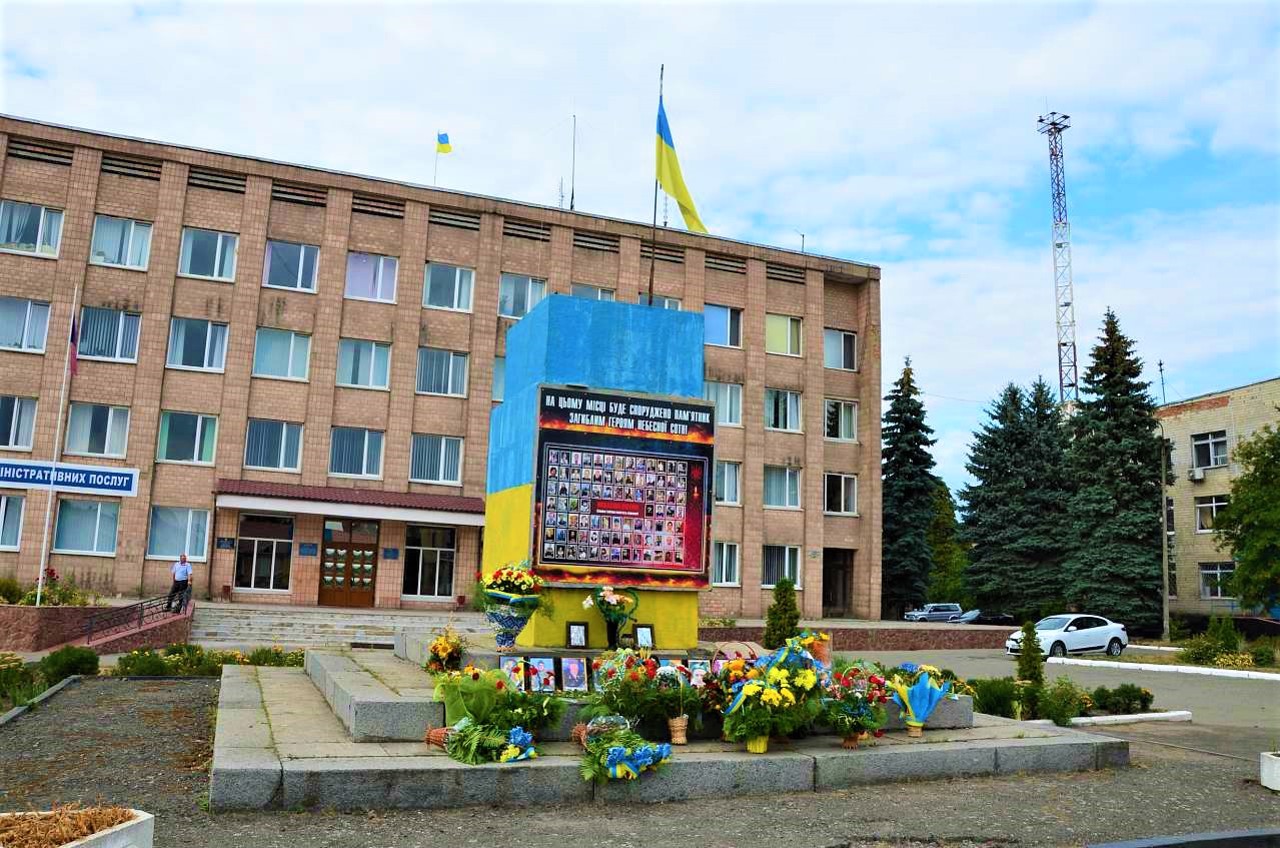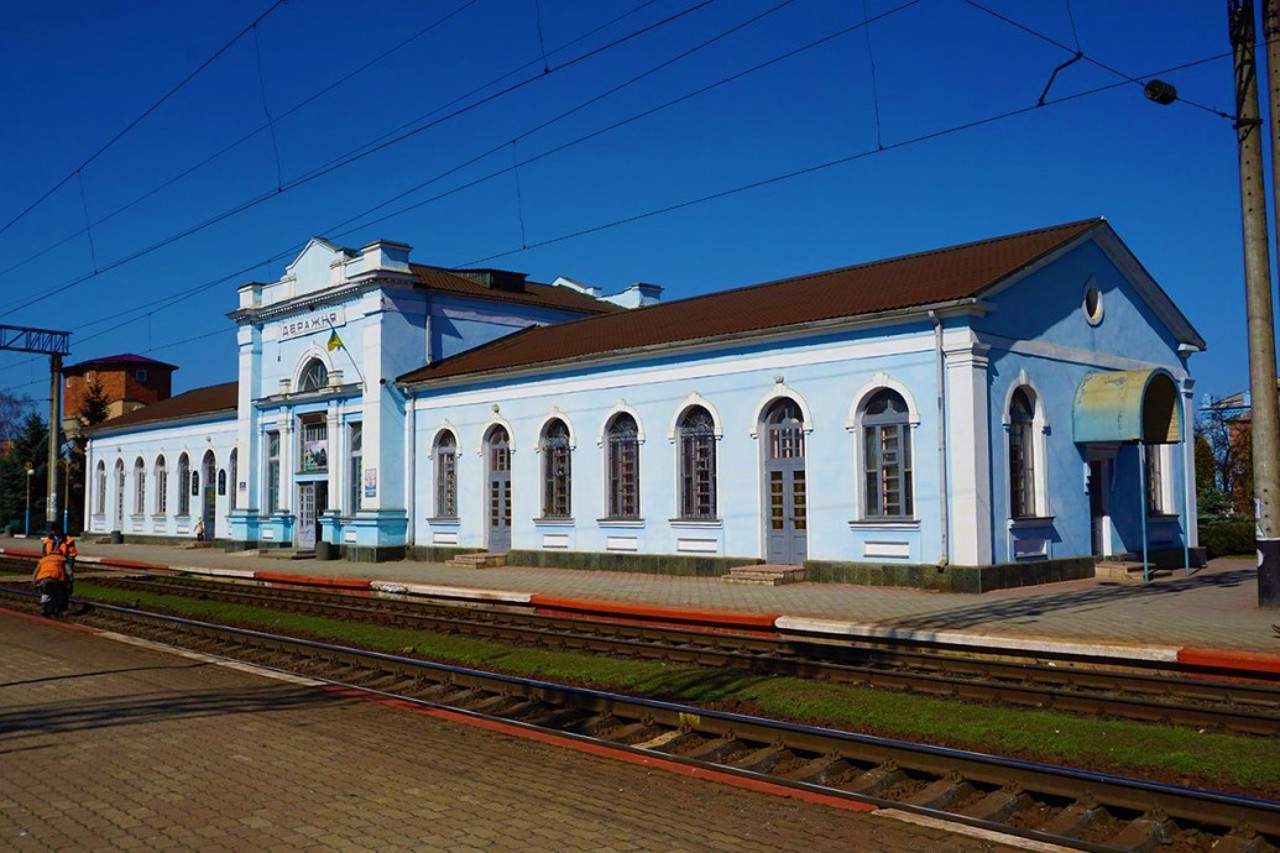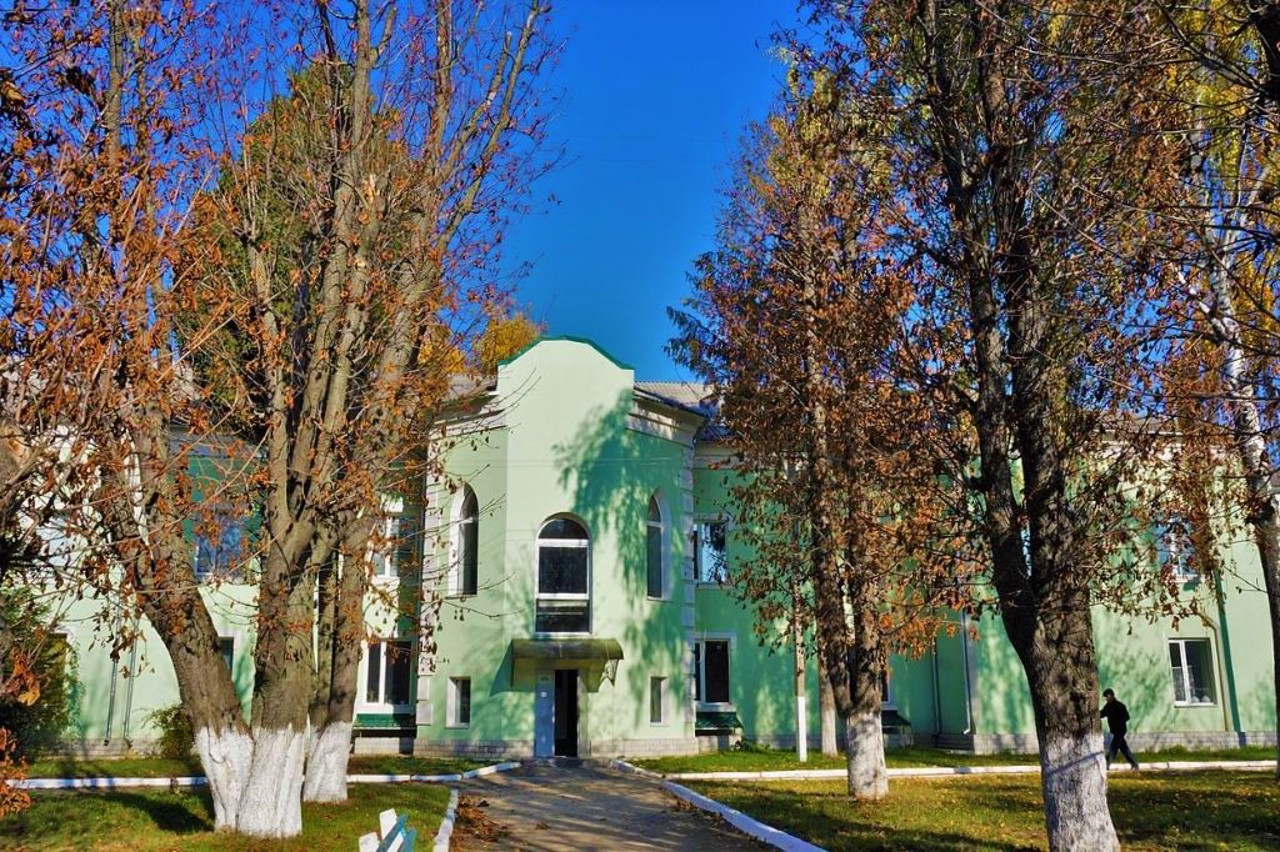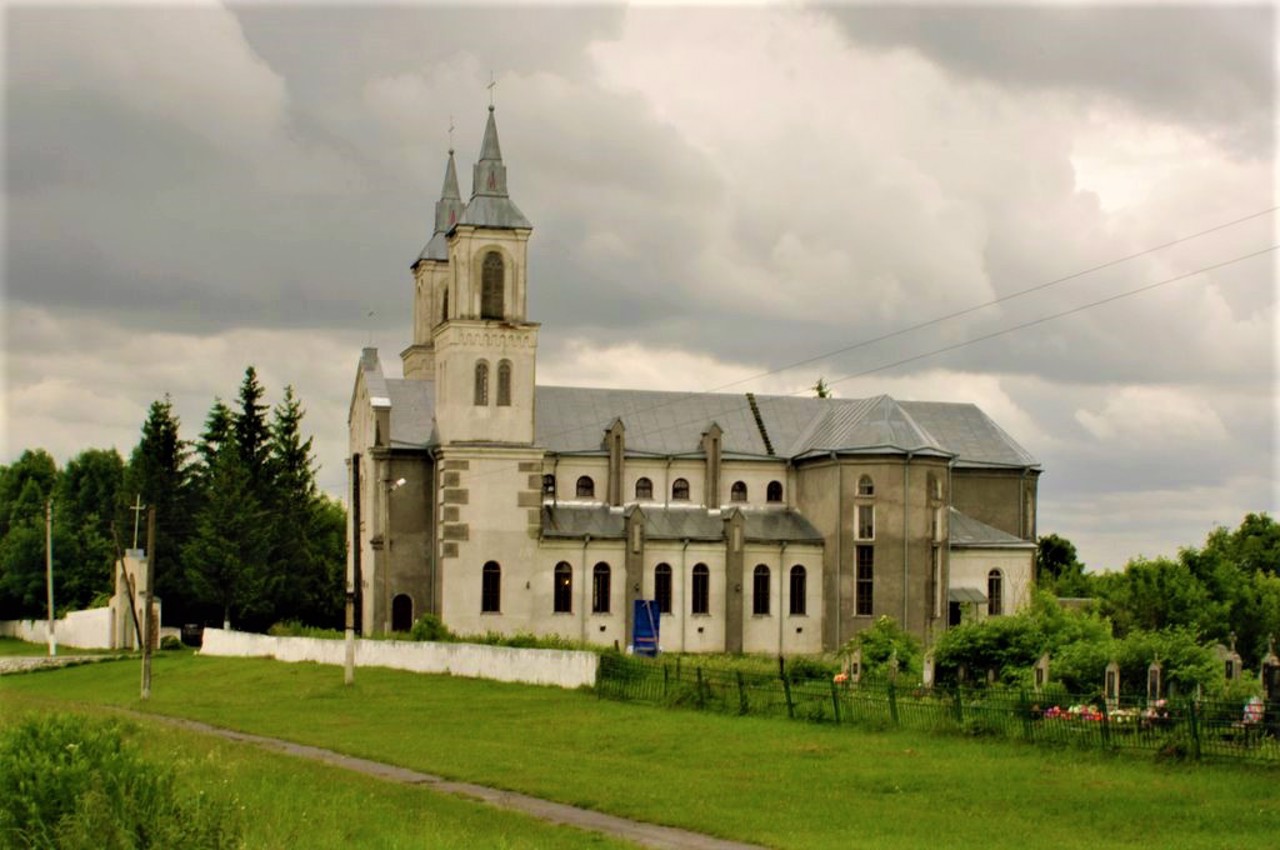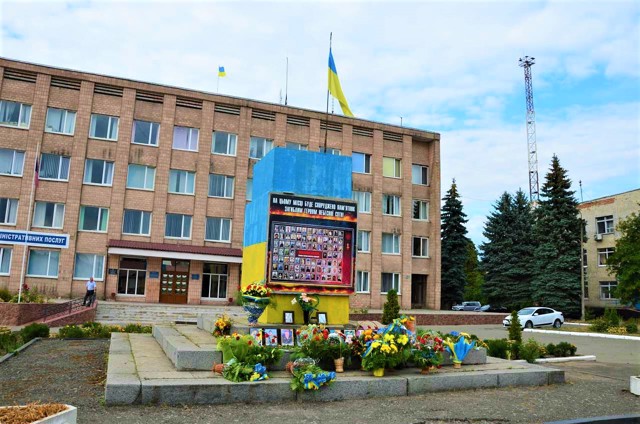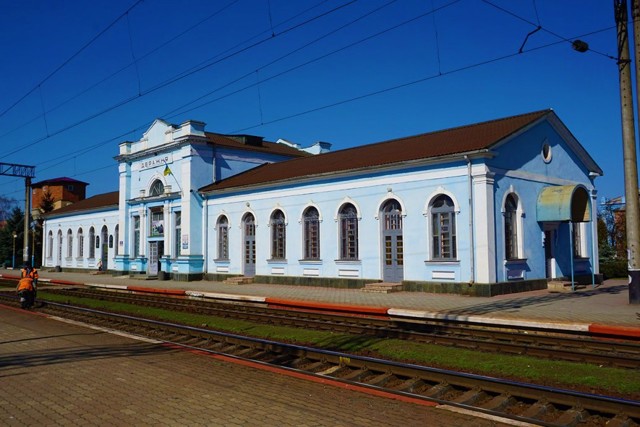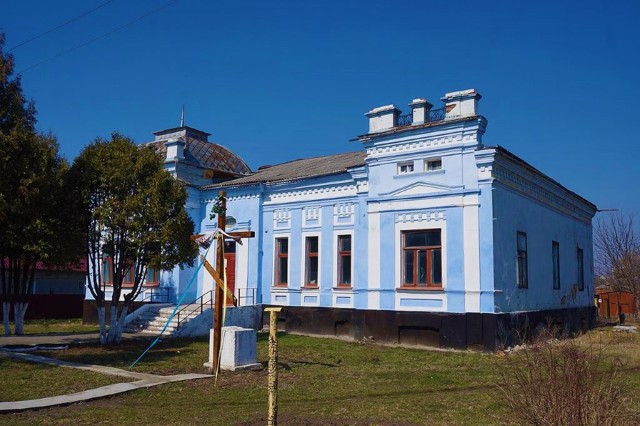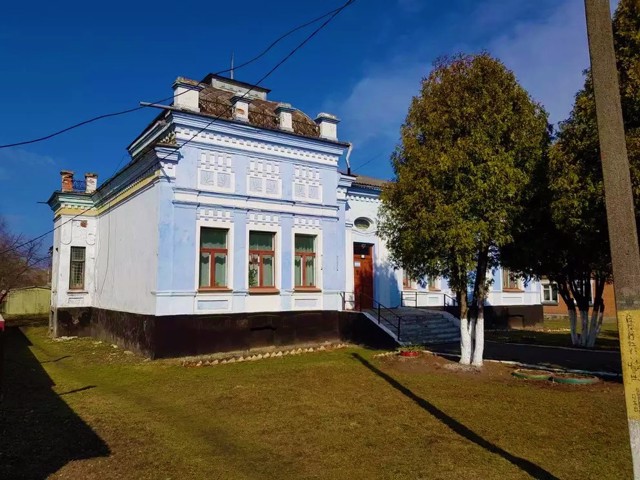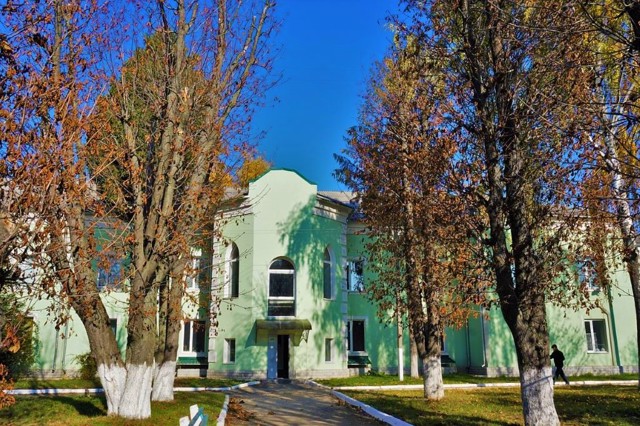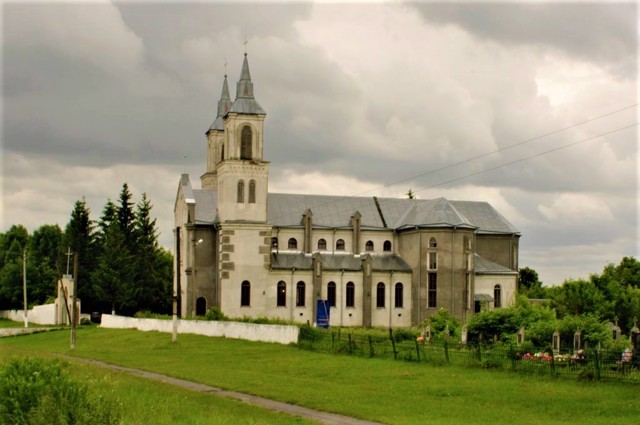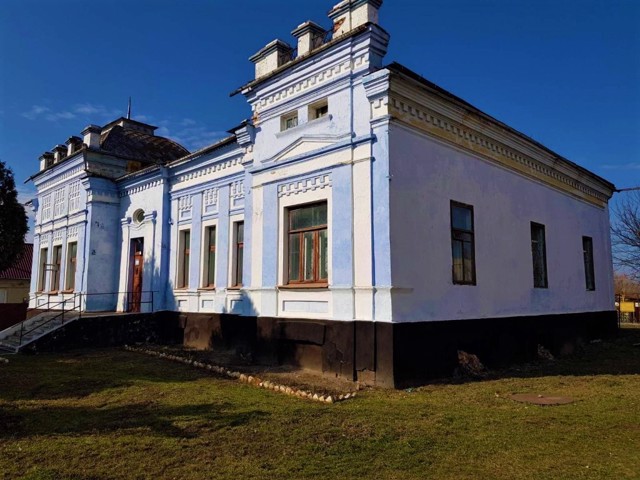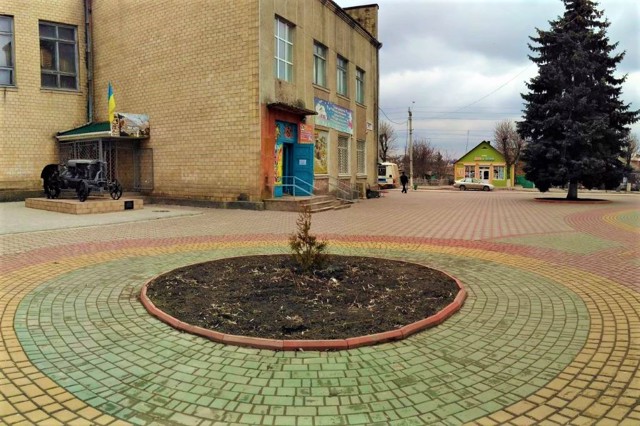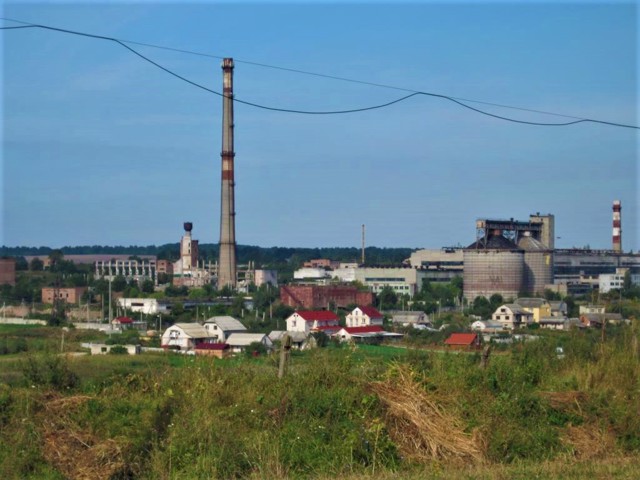Functional temporarily unavailable
Derazhnia
Travel guide online Derazhnia
General information about Derazhnia
The city of Derazhnia on the Vovk River is located 40 kilometers southeast of Khmelnytskyi.
It was first mentioned in 1431. In 1614, under the Polish king Sigismund III, the city received the Magdeburg title. The first wooden church was built in the 18th century by Antoniy Lyubomyrskyi. Later, the owners of the town changed several times. In the first half of the 19th century, Derazhnia was one of the centers of the rebel movement led by Ustym Kapmalyuk.
In 1844, Derazhnia was bought by Stanislav Ratsiborovskyi, whose descendants became the last owners of the city. The stone church of Saint Anna built by them did not survive - the current Catholic church was rebuilt recently on a new site, where th ...
The city of Derazhnia on the Vovk River is located 40 kilometers southeast of Khmelnytskyi.
It was first mentioned in 1431. In 1614, under the Polish king Sigismund III, the city received the Magdeburg title. The first wooden church was built in the 18th century by Antoniy Lyubomyrskyi. Later, the owners of the town changed several times. In the first half of the 19th century, Derazhnia was one of the centers of the rebel movement led by Ustym Kapmalyuk.
In 1844, Derazhnia was bought by Stanislav Ratsiborovskyi, whose descendants became the last owners of the city. The stone church of Saint Anna built by them did not survive - the current Catholic church was rebuilt recently on a new site, where the cemetery chapel used to be.
Economic growth at the end of the 19th century was associated with the construction of the Hrechany - Zhmerinka-Podilska railway and the opening of the "Derazhnia" railway station in 1896 (the railway museum operates).
During the Second World War, there was a Jewish ghetto in Derazhnia, the entire Jewish and Gypsy population was shot. A monument was erected at the site of the mass shooting.
Few examples of old buildings are located along the central street of Myru.
Місто Деражня на річці Вовк розташоване в 40 кілометрах на південний схід від Хмельницького.
Вперше згадується в 1431 році. В 1614 році за польського короля Cигізмунда III міcтечко отримало Магдебурзьке пpаво. Перший дерев'яний костел в XVIII столітті збудував Антоній Любомирський. Далі господарі містечка неодноразово змінювалися. В першій половині XIX століття Деражня була одним з центрів повстанського руху під проводом Устима Каpмалюка.
В 1844 році Деражню купив Станіслав Раціборовський, нащадки якого стали останніми власниками містечка. Побудований при них кам'яний костел Святої Анни не зберігся - нинішній католицький храм відбудовано нещодавно на новому місці, де була цвинтарна каплиця.
...
Місто Деражня на річці Вовк розташоване в 40 кілометрах на південний схід від Хмельницького.
Вперше згадується в 1431 році. В 1614 році за польського короля Cигізмунда III міcтечко отримало Магдебурзьке пpаво. Перший дерев'яний костел в XVIII столітті збудував Антоній Любомирський. Далі господарі містечка неодноразово змінювалися. В першій половині XIX століття Деражня була одним з центрів повстанського руху під проводом Устима Каpмалюка.
В 1844 році Деражню купив Станіслав Раціборовський, нащадки якого стали останніми власниками містечка. Побудований при них кам'яний костел Святої Анни не зберігся - нинішній католицький храм відбудовано нещодавно на новому місці, де була цвинтарна каплиця.
Економічне зростання в кінці XIX століття пов'язане з прокладкою залізниці Гречани - Жмеринка-Подільська та відкриттям в 1896 році залізничної станції "Деражня" (працює музей залізниці).
Під час Другої світової війни в Деражні знаходилось єврейське гетто, було розстріляно все єврейське та циганське населення. На місці масового розстрілу встановлено пам'ятник.
Нечисленні зразки старої забудови розташовані вздовж центральної вулиці Миру.
Сплануй своє перебування у Derazhnia
What to see and where to go in Derazhnia
Tourist attractions and museums of Derazhnia
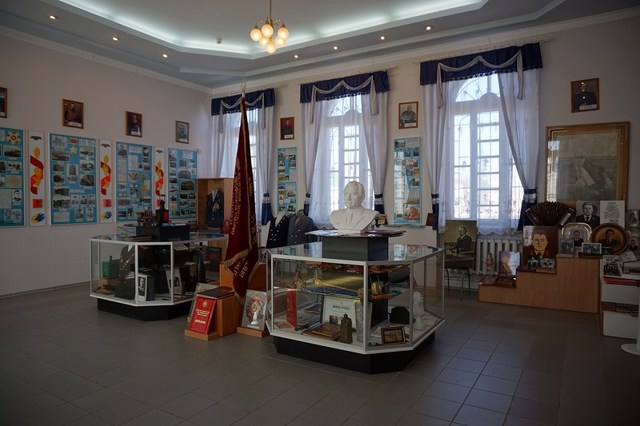
Central Railway Museum named after Borys Oliynyk
Museum / gallery
The Historical Museum of the Central Railway (formerly South-West) named after Borys Oliynyk was opened in 2001 at the "Derazhnia" railway station.
The station building in Derazhnia was built in 1896.
The exhibition of the Central Railway Museum tells about the development of railway transport from the moment of its inception to the present.
A separate exhibition is dedicated to one of the managers of the Central Railway, Borys Oliynyk, who was born in 1934 in the village of Bozhykivtsi near the city of Derazhnia. Personal things, photos and documents tell about his life and work path.
Interesting models of locomotives and armored trains.
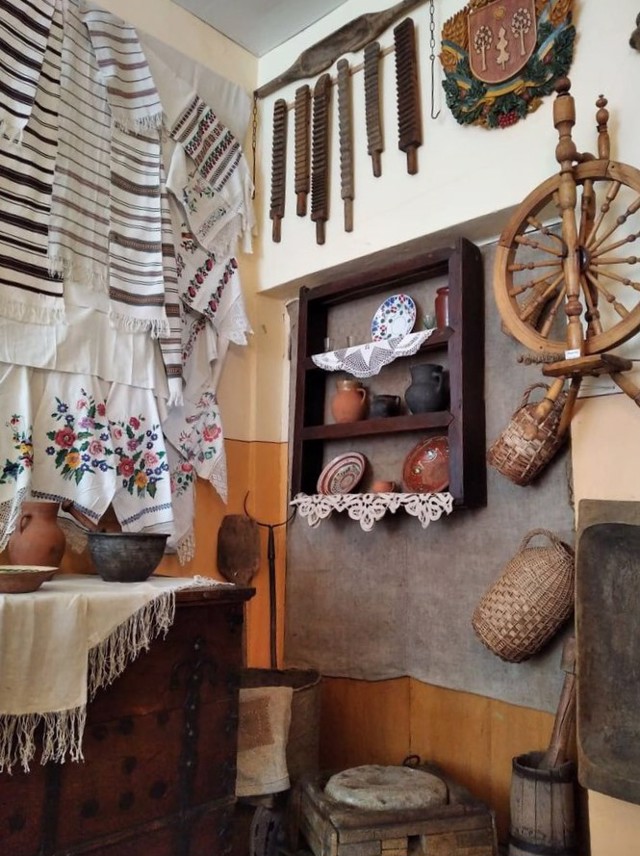
Derazhnia City Historical Museum
Museum / gallery
Derazhnia Historical Museum is located in the city center.
The exposition tells about the nature and history of the region, has 8 thematic sections: "Geographical position of the region", "Nature of the region", "From the depths of the ages", "The region on the way to independence", "At the turn of the millennium", "Glorious names of the region", "Trouble of the 1930s-1940s" and "For Ukraine, for her will".
Museum employees conduct sightseeing tours of the Derazhnia.
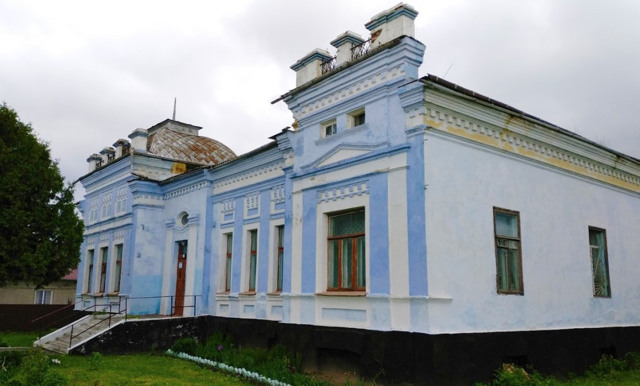
Hershhorin Palace
Palace / manor , Architecture
The palace of lawyer Samuel Hershhorin is located on the central street of Derazhnia.
The one-story residential building in the Art Nouveau style was built in 1910. Later, a gymnasium was located here, which in 1921 was repurposed into a labor school, and later into a house of pioneers. Due to an error in the documents, the building received the status of an architectural monument of local importance as the "Mansion of the private lawyer Perytorin".
In 2022, the building was purchased at an auction by the founder of the "Spadshchyna.Ua" initiative, Hanna Havryliv. She plans to use the Gershhorin Palace to develop the tourism potential of Derazhnia. The restoration of the monument has begun, research work is being carried out.
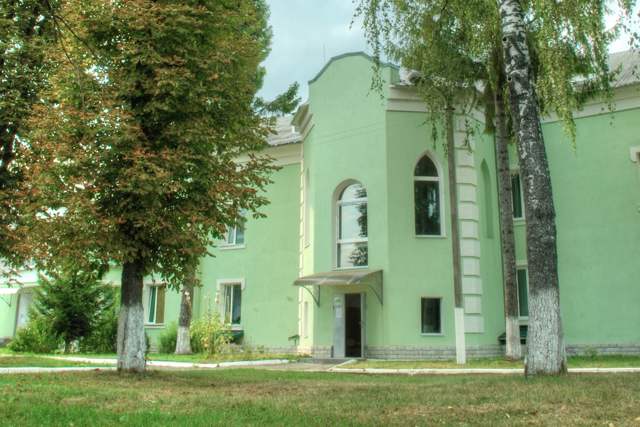
Ratsiborovsky Manor
Palace / manor , Architecture
The former mansion of the Ratsiborovsky family in Derazhnia is now one of the buildings of the local hospital.
The estate in Derazhnia was founded at the end of the 18th century by the banker Petro Tepper, who greatly contributed to the economic development of the town. Near the center of the town, Tepper built a small palace surrounded by a park.
In 1844, Stanislav Ratsiborovsky became the owner of Derazhnia. His descendants reconstructed the palace in the Art Nouveau style in 1902.
In Soviet times, the building was rebuilt as a hospital, as a result of which it almost completely lost its historical appearance.
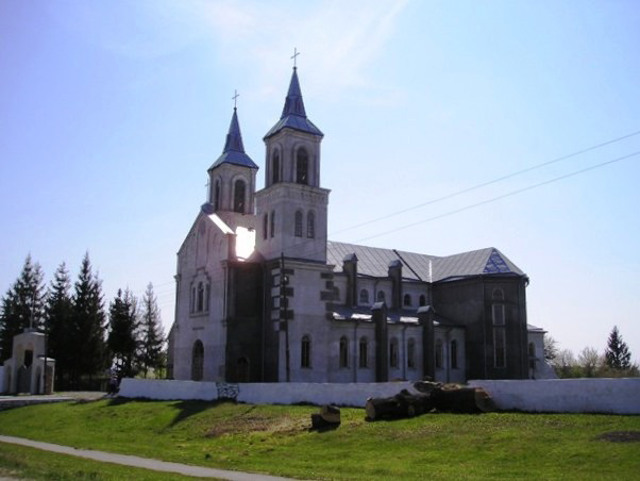
Saint Anna's Church
Temple
The modern church of Saint Anna in Derazhnia was built in 2000 on the site of the cemetery chapel, which in Soviet times served as the only Catholic church in the city.
The first wooden Catholic church in Derazhnia existed as early as the 17th century. In 1726, it was rebuilt (again from wood) at the expense of the owner of Derazhnia, Antoniy Lyubomyrskyi. In the 1840s, a new stone church was built on the initiative of one of the last owners of the town, Stanislav Ratsiborovskyi. Unfortunately, it was completely destroyed in the 1930s.
For a long time, local Catholics were forced to use a small chapel in the cemetery on the way out of the city in the direction of Khmelnytskyi for religious services. Today, a new majestic neo-Gothic church of Saint Anna with two pointed towers rises here.
Reviews Derazhnia
Geographical information about Derazhnia
| {{itemKey}} | {{itemValue}} |
|---|---|
| Region |
Khmelnytskyi |
